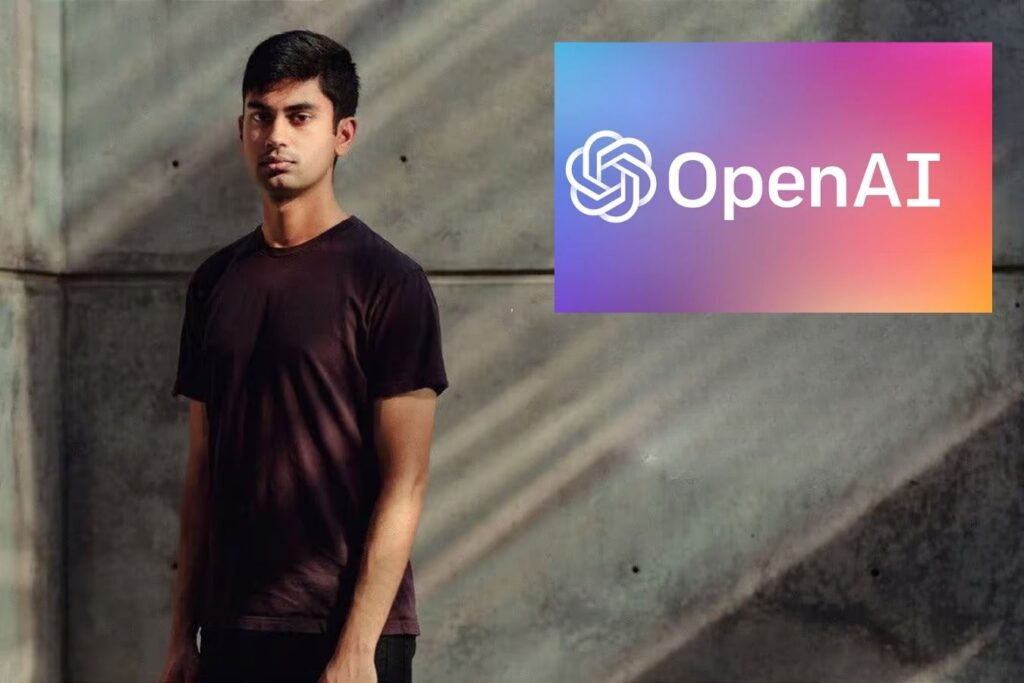A former OpenAI researcher, who recently spoke out against the company’s use of copyrighted materials to train its blockbuster AI program ChatGPT, has passed away. Authorities in San Francisco confirmed that Suchir Balaji, age 26, died by suicide in late November.
Balaji’s death has saddened those who were following his story and the larger debate around artificial intelligence ethics. Known for his willingness to publicly address the complicated issue of using copyrighted text for AI training, Balaji was expected to play an important role in several lawsuits filed against OpenAI. These lawsuits claim the San Francisco-based company illegally used authors’, journalists’, and computer programmers’ work to create its cutting-edge AI models.
Balaji’s Concerns About OpenAI’s AI Development
Just three months before his passing, Balaji publicly accused OpenAI of breaking U.S. copyright laws. He argued that the company’s approach—gathering huge amounts of text from countless sources online—was not just unfair but potentially illegal. His stance highlighted a tension that’s been bubbling under the surface of AI’s remarkable rise: Can companies freely use other people’s work to build their own massively profitable products?
Through social media posts and a thoughtful blog entry, Balaji made it clear that he had doubts about whether “fair use”—a legal principle allowing some limited reuse of copyrighted material—could justify what companies like OpenAI were doing. He suggested that by relying on these laws, AI companies might be seriously harming the very people who created the texts and images now fueling their technologies.
Also Read
While Balaji never became a household name, those in the tech community and in the evolving “AI ethics” space knew him as a thoughtful, detail-oriented voice. He frequently raised the alarm about how generative AI, like ChatGPT, could reshape the way we share, value, and protect information online. His willingness to speak up, even if it meant standing against a high-profile company like OpenAI, earned him respect and attention from both colleagues and critics.
Balaji’s death came after police were called to check on his well-being at his Buchanan Street apartment in San Francisco’s Lower Haight on November 26. They found no evidence of foul play, and the medical examiner determined that he had taken his own life. News of this tragedy left many saddened, especially those who admired his courage in bringing tough ethical questions to the forefront.
Before his death, Balaji’s insights were seen as potentially important in the growing wave of lawsuits targeting OpenAI and other AI companies. Authors and journalists claim their copyrighted materials were used without permission to train these large language models—systems that can produce human-like text and are now valued at over $150 billion.
Without Balaji’s direct input, these legal cases may still rely on the perspectives he shared publicly. His arguments against the broad use of fair use defenses by AI companies remain part of the public record, and lawyers and judges could still consider his viewpoints as they sort out where the lines should be drawn.
Suchir Balaji Biography
Suchir Balaji was a researcher at OpenAI from 2020 to 2024, contributing to the development of AI models like GPT-4. He graduated from the University of California, Berkeley, before joining OpenAI.

During his tenure, Balaji raised ethical concerns about OpenAI’s data practices, particularly the use of copyrighted material without proper authorization. He argued that training AI models on such data could violate U.S. copyright laws and harm content creators.
Balaji’s concerns gained attention in October 2024 when he was featured in a New York Times profile discussing these issues. He was also identified as a potential source of relevant documents in a federal lawsuit filed by The Times against OpenAI, alleging improper use of journalistic content.
Tragically, on November 26, 2024, Balaji was found deceased in his San Francisco apartment. The medical examiner ruled his death a suicide, with no evidence of foul play. OpenAI expressed condolences to his family and loved ones.
Here’s Suchir Balaji’s complete biography:
| Aspect | Details |
|---|---|
| Full Name | Suchir Balaji |
| Date of Birth | Not publicly available |
| Place of Birth | Not publicly available |
| Age at Death | Early 30s (as of 2024) |
| Date of Death | November 26, 2024 |
| Place of Death | San Francisco, California, USA |
| Nationality | American |
| Education | Bachelor’s Degree from University of California, Berkeley |
| Profession | Researcher, AI Developer |
| Key Roles | – Researcher at OpenAI (2020–2024) |
| – Contributor to the development of AI models, including GPT-4 | |
| Notable Contributions | – Focused on ethical AI development |
| – Raised concerns about data practices, particularly the use of copyrighted material in AI training | |
| Whistleblowing Activity | – Criticized OpenAI for data scraping practices, raising ethical and legal concerns |
| – Highlighted potential violations of U.S. copyright laws and harm to content creators | |
| Legal Involvement | Identified as a potential source of documents in a federal lawsuit by The New York Times against OpenAI |
| Legacy | Advocated for ethical development and deployment of AI |
| Cause of Death | Suicide (confirmed by San Francisco medical examiner) |
| Impact | – His concerns influenced discussions on AI ethics and responsible data use |
| – Highlighted the personal and professional pressures in tech ethics fields |
Balaji’s passing underscores the intense pressures faced by individuals addressing ethical challenges in rapidly evolving technological fields. His contributions and concerns continue to influence discussions on the ethical development and deployment of artificial intelligence.
For those who knew him and for those who only learned of him through his public statements, it’s a reminder that behind every big technological shift, there are real people—thinkers, researchers, and sometimes whistleblowers—fighting to ensure that progress doesn’t come at too high a cost.






